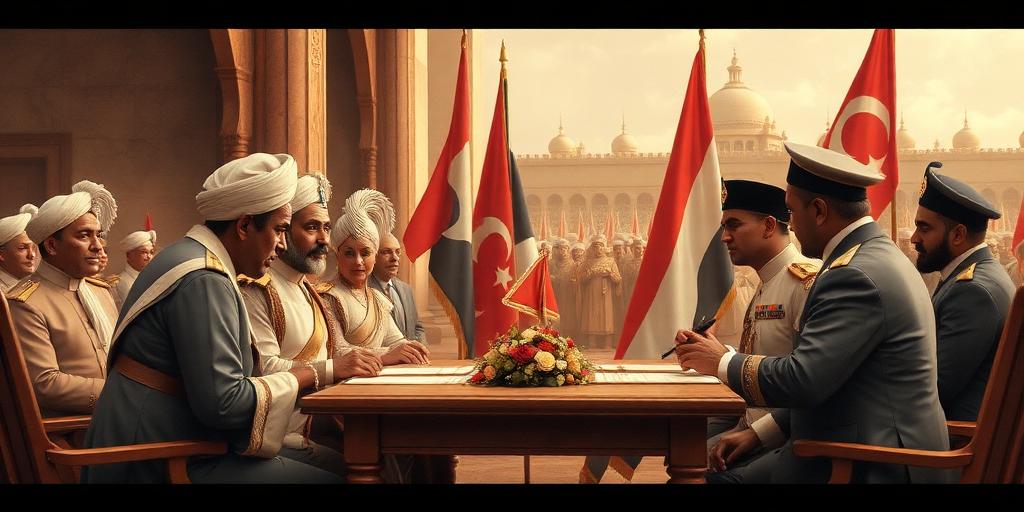Understanding the History of Diplomatic Engagements
Diplomacy, the art and practice of conducting negotiations between representatives of states, has shaped the course of history. From ancient treaties to modern summits, diplomatic engagements have resolved conflicts, fostered cooperation, and established the foundations of international relations. This post explores the key milestones, concepts, and figures in the history of diplomacy.
Ancient Diplomacy: Foundations of Negotiation
Diplomacy dates back to ancient civilizations, where it served as a means to manage relations between city-states and empires.
- Mesopotamia: The earliest recorded diplomatic activities occurred in Mesopotamia, with envoys facilitating trade and negotiating peace treaties between Sumerian and Akkadian city-states.
- Ancient Greece: The Greeks developed sophisticated diplomatic practices, including the use of ambassadors and the establishment of diplomatic immunity. The Delian League is an early example of multilateral diplomacy.
- Roman Empire: Roman diplomacy focused on conquest and governance, integrating conquered territories through treaties and alliances. The concept of Pax Romana was maintained through strategic diplomatic engagements.
Medieval Diplomacy: Religion and Royal Courts
During the Middle Ages, diplomacy was heavily influenced by religious institutions and royal courts.
- Byzantine Empire: Byzantine diplomacy was renowned for its complexity and intrigue, employing elaborate ceremonies and sophisticated negotiation tactics to maintain its influence.
- Papal Diplomacy: The papacy played a crucial role in mediating conflicts between European monarchs, using religious authority to enforce treaties and promote peace.
- Rise of Resident Ambassadors: Italian city-states like Venice and Florence pioneered the use of resident ambassadors, establishing permanent diplomatic missions to gather information and negotiate on behalf of their states.
Renaissance Diplomacy: The Birth of Modern Practices
The Renaissance marked a turning point in the history of diplomacy, with the development of modern diplomatic practices and institutions.
- The Italian System: The Italian city-states established a sophisticated system of diplomacy, characterized by the exchange of ambassadors, the use of diplomatic protocols, and the development of international law.
- Treaty of Westphalia (1648): This treaty, which ended the Thirty Years' War, is considered a cornerstone of modern diplomacy. It established the principles of state sovereignty, territorial integrity, and the balance of power.
18th and 19th Century Diplomacy: The Age of Empires
The 18th and 19th centuries saw the rise of European empires and the development of a global diplomatic system.
- Congress of Vienna (1814-1815): Following the Napoleonic Wars, European powers convened at the Congress of Vienna to restore stability and reestablish the balance of power. This congress shaped the political map of Europe for decades.
- Colonial Diplomacy: European powers used diplomacy to expand their colonial empires, negotiating treaties with local rulers and establishing protectorates.
- Concert of Europe: An agreement by the major European powers to cooperate on maintaining peace and stability. Although it eventually broke down, it represented an important experiment in multilateral diplomacy.
20th and 21st Century Diplomacy: Multilateralism and Global Challenges
The 20th and 21st centuries have been characterized by the rise of multilateral diplomacy and the emergence of new global challenges.
- League of Nations: Established after World War I to promote international cooperation and prevent future conflicts. Despite its shortcomings, it laid the groundwork for the United Nations.
- United Nations: Founded in 1945, the UN has become the primary forum for multilateral diplomacy, addressing issues such as peace and security, human rights, and economic development.
- Cold War Diplomacy: The Cold War saw intense diplomatic maneuvering between the United States and the Soviet Union, with proxy wars and arms control negotiations shaping global politics.
- Contemporary Challenges: Modern diplomacy faces new challenges such as terrorism, climate change, and cyber warfare, requiring innovative approaches and international cooperation.
Conclusion
The history of diplomatic engagements reflects humanity's ongoing efforts to manage conflicts, foster cooperation, and build a more peaceful and prosperous world. From ancient treaties to modern summits, diplomacy remains an essential tool for navigating the complexities of international relations. Understanding its history provides valuable insights into the challenges and opportunities facing diplomats today.
Long-tail Keywords:
- History of diplomatic negotiations
- Evolution of diplomatic practices
- Key moments in diplomatic history
- Understanding diplomatic engagements
- Diplomatic history timeline









